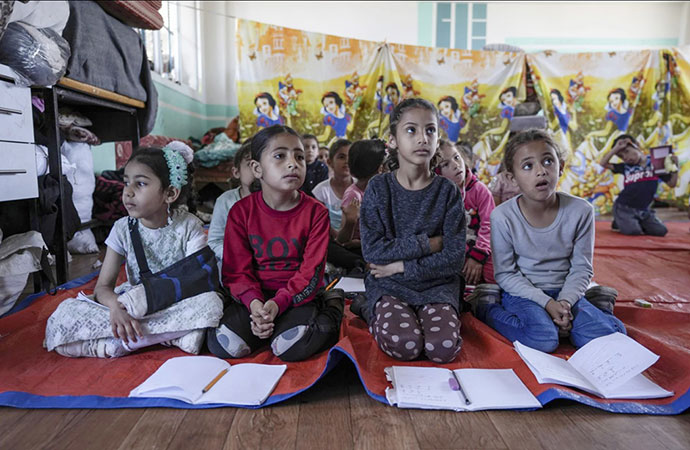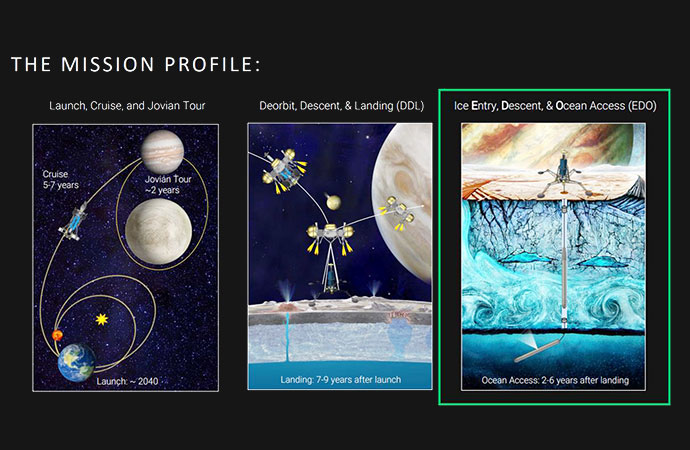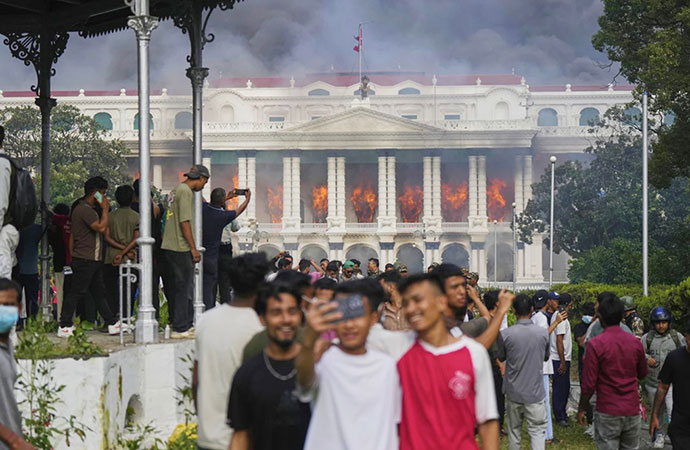Featured 2

Photo: AP/UNB
As stated by Nelson Mandela, 'Education is the most powerful weapon which you can use to change the world' It is still the only means of surviving and gaining power when everything else fails, including families, homes, food, and destinies-due to decades-long conflict such as in Palestine. It is only education through which they can make a future for themselves and impact the rest of the world. In Gaza, education is not only a path to academic success - it is a means to survive, a statement of honor and a tenuous prospect for a better future. For Palestinian girls, life is all about violence, constraints and unpredictability on a daily basis. For them, education is more than books and classrooms but freedom, safety and a future free from the shadow of war.
The Asian University for Women (AUW) in Chittagong, Bangladesh, is a ray of hope in this despondent landscape. Since 2024, AUW has already provided nearly 200 Palestinian girls with scholarships, bringing more than degrees. It offers them a sanctuary to allow themselves to develop, grow, and dream new options for their lives. The program fosters leadership and social responsibility, providing young women with the courage and means to lead transformation in their communities. For them, college is more than an opportunity - it is liberation.
A humanitarian mission interrupted
The vision of AUW is founded on the principle that women's education is fundamental to equality and justice. However, this laudable endeavor has run into strange trouble. Bangladesh's Ministry of Home Affairs in October 2024 approved visa-on-arrival for 189 Palestinian students in the country to facilitate their entry. But a few months later, in June 2025, the Chittagong Metropolitan Police abruptly declared that the facility had been canceled. Diplomats said that the students involved were well qualified and had been approved, but that the suspension had come under foreign pressure. For the young women affected, this was not just a relatively small bureaucratic glitch but a source of further delays and uncertainty, and the potential to miss their one opportunity to leave conflict behind and receive higher education.
The Palestinian Embassy in Dhaka also weighed in. Although it had been anticipated to stand starkly in support of AUW's humanitarian project, Ambassador Yusuf S.Y. Ramadan stated that admission would have to be consistent with the PA Ministry of Education's policies. His comments seemed to carry a note of resentment: the enrollment of Palestinian students in Bangladesh would only comply with embassy coordination, he said critically. This stance complicated matters further. In reply, instead of bowing down, AUW remained firm. On 15 August 2025, the university was explicit in making its position known: AUW is not associated with any political project and is open to students from all nationalities. It operates internationally and is not restricted in terms of where it may receive funding or who its students may be. There is no politics behind the process-just educating the girls-particularly of conflict-prone regions, such as Palestine, Afghanistan. The call was clear: the right to education should never be used as a political pawn.
Beyond classrooms: a haven
What AUW does for Palestinian girls, as for Afghans and as for the Rohingya, extends well beyond the classroom. The university also offers from its own resources housing, health, and mental health services to create a safe surrounding in which students can grow and develop. AUW has worked with the United Arab Emirates and Jordan to chart safer paths for students traveling through Gaza, where their journey is fraught with peril. Support also came from several UN agencies - a reminder of the international recognition of AUW's humanitarian work. This kind of care is about more than sustaining life - it is about dignity. When prioritising their students' well-being as much as, if not more than, their success at school, AUW is compassion in action. It is proof that knowledge can be a refuge, a barrier against hopelessness, and even a road to resilience.
Leadership in action
AUW's determination is the result of the unyielding vision of its founder and CEO, Kamal Ahmad, who has believed all along that young women have a right to an education, no matter the circumstances. He remembers the university's 2021 daring action of admitting 600 Afghan students in the fall-after the Taliban took over the nation-without Government clearance. Learners from Syria, Yemen, and other war-torn countries have also found a haven here. So why, Ahmad asks, should Palestinian girls today encounter any special hurdles? These are not just procedural delays - these are life, safety, and dignity issues. What's more, many of these young women have suffered the loss of loved ones, the displacement, and unimaginable trauma. Families send letters to the university, holding on to hope that their daughters can find safety and an education in Bangladesh. To them, AUW is more than just an institution; it's a lifeline. They are hailed as future leaders - women who will fight back against injustice and lead their communities toward change. For girls from Gaza, for whom even the act of pursuing an education is an act of resistance, opportunity is a game-changer.
Transformative power of education
In war-torn areas, for many students, that hope of higher education appears almost like a dream that cannot be attained. But AUW is proof that education can be an agent of change. International partnerships strengthen this mission. The United Arab Emirates has arranged safe passage for Palestinian students at Queen Alia International Airport in Jordan, and UN agencies have worked to ease the transition. But the AUW story is not just one of logistics. It is about building leadership from the ground up by serving the world as it is, not as some would like it to be. The student is volunteering in the local schools, working in community health projects, and raising awareness. Their education is not purely theoretical-it is also practical. And along the way, they learn about strength, kindness, and the burden of leadership. For these young women, each lecture, each assignment, and each community project is a stepping stone on a journey - a journey that's guiding them through the process of restoring societies that have been shattered by violence. Education here is not a matter of survival; it is empowerment.
AUW as a model of compassion
The story of AUW is not just the tale of a single university but of what higher education can represent in times of global crisis. Education is a matter of humanity. For Palestinian girls, it is the single thread of hope in a fabric of desolation. For Afghan and Rohingya students, it is a path to dignity and justice.
AUW demonstrates that a university is not just a place of study, but a sanctuary for women to envision new possibilities, to stand up against biases, and to lead with fairness and courage. Through this vision, AUW calls on the world to see education as a human right and a direct responsibility for all!
The human face of education
And what makes this journey so powerful is the bravery of the students themselves. "And yet, despite the bombs, the blockades, and the grief, they hold on to education with remarkable tenacity. And their presence at AUW is more than a personal accomplishment- it is a statement to the world that Palestinian girls will not be suppressed, set aside, or deprived of their futures. Being graded in AUW doesn't limit students at all. They are raised to participate in society - raising children, highlighting social problems, or advocating for public health. Every action is an action to build power, and every person a voice amplified for justice. What AUW offers is hope-for every girl to stand, awaken, and see what is wrong; to pass on the whisperings of other women's bravery while leading, fight bias, and construct a compassionate and equal society.
Toward a more just future
The hardships of young Palestinians demonstrate that there are still considerable obstacles to achieving a global education. For teenage girls in Gaza, life is defined by instability and daily crises. In that context, education is not a means of getting a degree but a matter of survival, freedom, and hope. All these diplomatic obstacles, political pressures, and threats to personal travel would have been enough to discourage a lesser group than AUW. Its investment in the education and leadership of women is a defiant message in the face of oppression and injustice. It is more than that, it's a vision for the future - a conviction that women's education can change societies across Asia and beyond.
Through a seamless integration of institutions of higher education, humanitarian support services, and an institutionalized community service model, AUW extends new hope to the most marginalized women, whose lives have been truncated by catastrophe. At Princeton and elsewhere, students aren't given an education-they're given experience, insight, and the leadership tools to effect lasting change.
Education as resistance
The story of AUW and its Palestinian students is evidence that education is about more than reading books and taking tests. It is human empathy and bravery, and one of the most effective tools for social transformation. For the girls of Gaza, education is safety, dignity, and the power to rebuild broken communities. May the door of education remain ajar for Palestinian girls - and for the girls of Afghanistan, Syria, Yemen, and everywhere else. For in every classroom where a girl gets an education, seeds of justice, of equality, and of peace are sown. May this leadership spread across Asia, and beyond!
Professor Dr. Ala Uddin (ala.uddin@cua.ac.bd), professor of anthropology at Chittagong University

























Leave a Comment
Recent Posts
Religion and Politics: A Toxic ...
At Dhaka University, cafeteria workers have been told not to wear shor ...
Enayetullah Khan joins AsiaNet ...
AsiaNet’s annual board meeting and forum was held in Singapore, ...
In a New York minute
Many leaders back a UN call to address challenges to ..
Defaulted loans at Non-Bank Financial Institutions ( ..
How the late Zubeen Garg embodied cultural affinitie ..